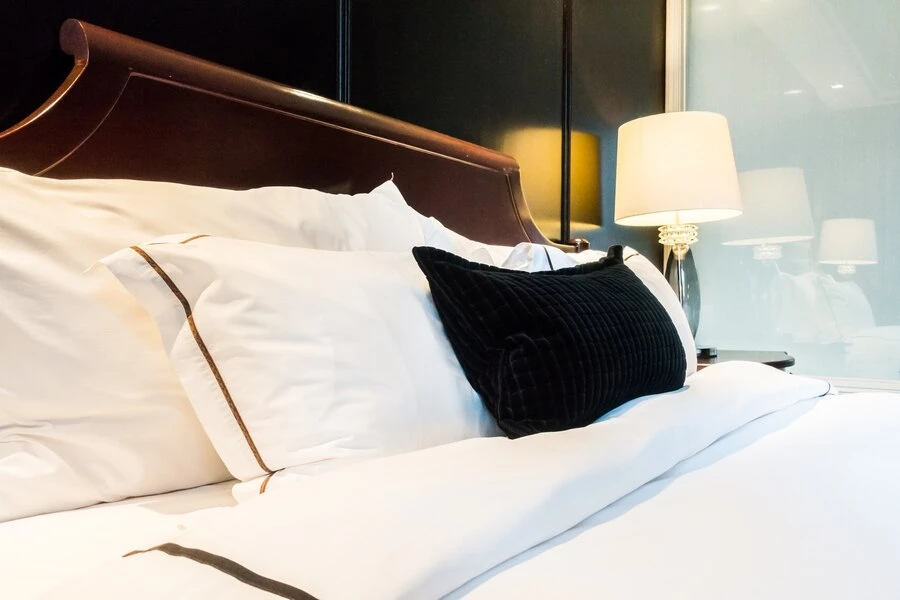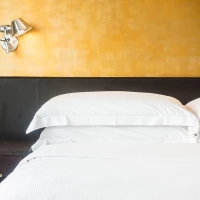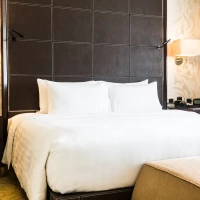
Rehab for Gambling
Get in touchCompulsive gambling is an increasing issue across the UK, and many people are suffering from the consequences that this can bring.
Get Help for Gambling Addiction
Gambling can be a fun pastime, and it is common for people to have this as a hobby. However, compulsive gambling is an issue much like drug and alcohol addiction.
Gambling addiction can affect people the same way that using drugs or becoming dependent on alcohol does, but not many people understand this.
If you are concerned about your gambling habits or have noticed a change in loved ones regarding this habit, then it may be time to seek support. There are many ways that you can treat gambling addiction, including going on a rehabilitation programme much like you would for any other addictions.
In this guide, we are sharing the best gambling addiction treatment programme in the UK and what kind of help is out there to help you stop gambling.
Contact our tea, today to complete your free addiction assessment and get the right treatment for you.
Benefits of Gambling Rehabilitation
Many benefits come from gambling addiction treatment programmes, and this is one of the most effective ways to treat a gambling problem.
Online gambling is a huge market and one that can lead very easily to compulsive gambling, which is why more people than ever before are looking for treatment programmes for this issue. Entering rehab for your gambling problem can be the best way to treat your current issues, as well as for relapse prevention.
There are many benefits that gambling rehab can offer, such as:
An individualised residential treatment programme for all patients to help them stop gambling
Help for mental disorders and financial difficulties which are caused by gambling
Access to addiction specialists and medical professionals
Combination of treatment options, including talking therapy, group therapy and behavioural therapy
Ongoing gambling therapy for behavioural addiction and impulse control disorder for long-term recovery
A holistic approach to gambling treatment with the help of expert therapists
Removal from the current environment and triggers for a clean break
Treating gambling addiction is the same as working with any other form of addiction, as gambling cravings affect the mind and body the same way as any other high.
Compulsive betting is a common issue in the UK and one that may not be seen as dangerous as drug or alcohol addiction, but professionals in the field know otherwise, which is why they offer intensive inpatient treatment for gambling addiction as well as drugs, alcohol and other substances.
.png)
Problem gamblers will experience issues in various areas of their life when dealing with their addiction, including mental health problems and financial issues, which need to be treated.
With a combination of treatments, symptoms of gambling addiction can be managed as well as learning better coping mechanisms to use in future.
If you are concerned about yourself or your loved ones, then you need to seek help.
We offer help for all forms of behavioural addiction, including gambling and sex addiction, and can help treat the negative effects that this causes.
Contact us today if you are ready to take the first step and are ready to receive treatment of gambling.
Gambling Rehab Cost
The average cost of gambling addiction treatment in the UK can vary from £10,000 to £30,000 for a 30-day treatment programme.
The cost of gambling rehab will vary based on the length of the treatment and where this takes place. Additional services, such as outpatient support, can contribute to the overall cost.
To discuss the prices of the treatment you require, please complete our contact form now. We have various centres around the UK, easily accessible from Scotland, Wales, and various other areas.
Gambling Addiction Types
Most people will gamble in some capacity which makes identifying a gambling addiction difficult. Based on the behaviour of the patient and the kind of gambling they do, the treatment they need will vary.
As there are many forms of gambling, there are many kinds of gamblers, and each varies in their need for recovery. The common types of gambling behaviours are:
Professional Gambler
For professional gamblers, casinos are where they make most of their money. Unlike social or casual gamblers, gambling for these people focuses on their skills and is their primary way of making money.
Gambling is not a hobby or a fun activity for these people, as they gamble to make money which makes it difficult for them to stop gambling on their own.
.png)
Antisocial Personality Gambler
This kind of gambling addict is attracted to the illegal sides of gambling and usually has a history of crime or antisocial behaviour to go with it.
This kind of problem gambling focuses on the risk of the game and may resort to stealing money from family members and loved ones or other forms of illegal activities to get by.
Casual Social Gambler
These kinds of people are at a low risk of addiction, but this does not mean their gambling is not a problem. This is where most gamblers sit in terms of the gambling scale, as they will gamble for fun or as a casual hobby when the time is right.
Serious Social Gambler
People in this category will gamble as their main social interaction, but they can usually hold onto other hobbies at the same time.
Most in this category can handle their impulses but may need additional help following a big win or big loss.
Relief and Escape Gambler
These kinds of people have low self-esteem and therefore rely on gambling to deal with their emotions. These kinds of people commonly deal with mood swings and use gambling money as a way to cope with both these good and bad feelings.
Due to this reliance, these patients can easily become addicted and will need recovery before it affects more of their life.
Compulsive Pathological Gambler
These people are suffering from a recognised psychological disorder and will continue to gamble despite negative impacts on their lives, family and loved ones. These kinds of people need a long-term treatment plan, and the recovery process will not be easy, which is where rehab comes in.
If you wish to visit a rehab centre away from your home so you get the privacy you require, please speak to us today.
What is Gambling Rehab?
Gambling rehab is a way of treating problem gambling and the symptoms that come with it.
Like dealing with drug addictions, gamblers need some form of permanent recovery to ensure they can continue their life risk-free, and rehab can offer support here. There are two forms of rehab, inpatient and outpatient, and in most centers, these two treatments are combined for the best results.
Problem gambling can be managed and controlled in rehab. Various forms of therapy can be useful for this addiction, including counselling, group therapy, cognitive behavioural therapy, and family interventions.
Following a stint in rehab, ongoing help will be needed, which can come in the form of Gamblers Anonymous and talking therapies, helping people to manage the triggers in their daily life and prevent gambling again.
If you are concerned about yourself or a family member, then gambling rehab may be the best option. Do not hesitate to get in touch with us for further information regarding this treatment and how we can help.
Gambling Addiction Symptoms
The most common signs and symptoms related to gambling addiction include the following:
Obsessive behaviour related to gambling, casinos and betting
Using gambling as a way to handle emotions, stressful situations and low mood
Avoiding work and other commitments to gamble
Borrowing or stealing money to fund habits
Neglecting bills and other essentials to pay for betting odds
Lack of interest in other hobbies
Isolation from family members and friends to gamble
Secretive behaviour, especially regarding finances
Broken relationships with family and friends
Feelings of guilt and shame after gambling
Anxiety, stress, stomach aches, and digestive issues
Aggression and irritability
Lack of focus or motivation for anything other than gambling
Change in weight and sleep patterns
Gambling addiction can also become a huge financial burden for the person dealing with this issue, as well as their loved ones.
.png)
If you notice any of these signs in yourself or a loved one, please seek help from professional addiction counsellors today. We can provide a free confidential assessment as well as online support before you come into our centre.
FAQs
What are the Success Rates for Rehabilitation for Gambling Addiction?
There is a fairly low success rate for gambling addiction because, following rehab, patients need to remain dedicated to their treatment to treat the habit for good. It is reported that 15% of all gambling addicts can kick the habit for good.
This is why rehabs offer outpatient support and ongoing therapies to their patients to prevent a relapse in behaviour.
What Methods are Used in Rehabilitation for Gambling Addiction?
There are various forms of therapy used to treat gambling addiction, the most common being behavioural therapy, such as CBT. This is used to help people identify their issues, as well as find better ways to respond to their triggers.
Talking therapies, group therapy, and a family recovery programme are also used to treat this issue.

What are the Long-Term Effects of Rehabilitation for Gambling Addiction?
The long-term effects of gambling rehab can be extremely positive when done with the right support. By working with a professional treatment team, those in recovery from gambling can learn how to manage their issues and treat their disorder in healthy ways.
With this support, it is possible to live a life free from gambling issues, even following rehabilitation.
Throughout the rehab stay, patients will learn how to identify the underlying causes of their gambling addiction and develop new coping mechanisms to prevent a relapse.
As gambling causes a lot of financial problems, those in recovery will also learn how to manage their finances better.
What is the Duration of Rehabilitation for Gambling Addiction?
The minimum required duration for inpatient treatment is 28 days. The length of your stay will vary based on the severity of your issue.
How does Gambling Rehab Work?
Gambling rehab works as a way of teaching people to identify their triggers, which are the cause of gambling behaviours in the first place, and healthy coping mechanisms to prevent further issues. This is done through various forms of therapy and outpatient support.
Summary
Gambling addiction is a common issue and one that cannot be dealt with alone. If self help groups for addiction and mental health issues has not helped you, you may want to look at other options.
An inpatient addiction treatment programme for gambling is the best way to go, and this can help you find long-term recovery from your issues.
Gambling can be a casual pastime for most people, but it can also quickly become an addiction that affects multiple areas of your life, which is why professional help is needed as soon as possible when the signs appear.
If you are concerned about yourself or a family member, do not hesitate to get help today.
Get in touch
Skip to
Gallery





